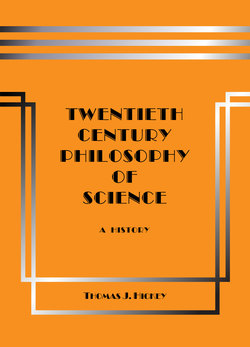Читать книгу Twentieth-Century Philosophy of Science: A History (Third Edition) - Thomas J. Hickey - Страница 113
На сайте Литреса книга снята с продажи.
Scientific Discovery
ОглавлениеUnlike most other philosophers, Mach’s concept of scientific discovery does not involve the idea of theory development. In his “The Part Played by Accident in Invention and Discovery” (1895) in his Popular Scientific Lectures Mach notes the importance of accident in invention and discovery, but maintains that the inventor is not passive. In fact Mach compares the discoverer to the artist. He says that no man should consider attempting to solve a great problem unless he has thoroughly saturated his mind with the subject, so that everything else recedes into relative insignificance. Then the discoverer can detect the uncommon features in an accidental occurrence and their determining conditions. Mach believed that it is the idea that dominates the thinking of the inquirer and not vice versa. The movement of thought obeys the laws of association, and in a mind rich with experience every sensation is connected with so many others that the course of thought is easily influenced by apparently insignificant circumstances, the accidental occurrence of which turn out to be decisive.
Therefore there is a process of discovery, and Mach considered how this process could be guided. He explicitly rejected any combinatorial approach as too laborious and extensive. The man of genius in Mach’s view consciously or unconsciously pursues systematic methods, and in his deliberate presentiment he omits many alternatives and abandons others after hasty trial, alternatives on which less endowed minds would squander their energies. From the abundance of fancies that a free and active imagination produces, there emerges one particular configuration, which fits perfectly with a basic design or idea. Mach does not elaborate further upon this process; and while he believes that it may be guided, he does not propose any consciously repeatable procedure. Perhaps he could go no further in this investigation, because he also believed in gestalt qualities and accepted a wholistic view of complexes of sense impressions. In any event his belief that the process can be guided leads him to conclude that genius may be regarded as only a small deviation from the average mental endowment. He states that the way to discovery must be prepared long beforehand, and that in due course the truth will make its appearance inexorable as if by divine necessity. Apparently therefore he rejected the heroic theory of invention.
